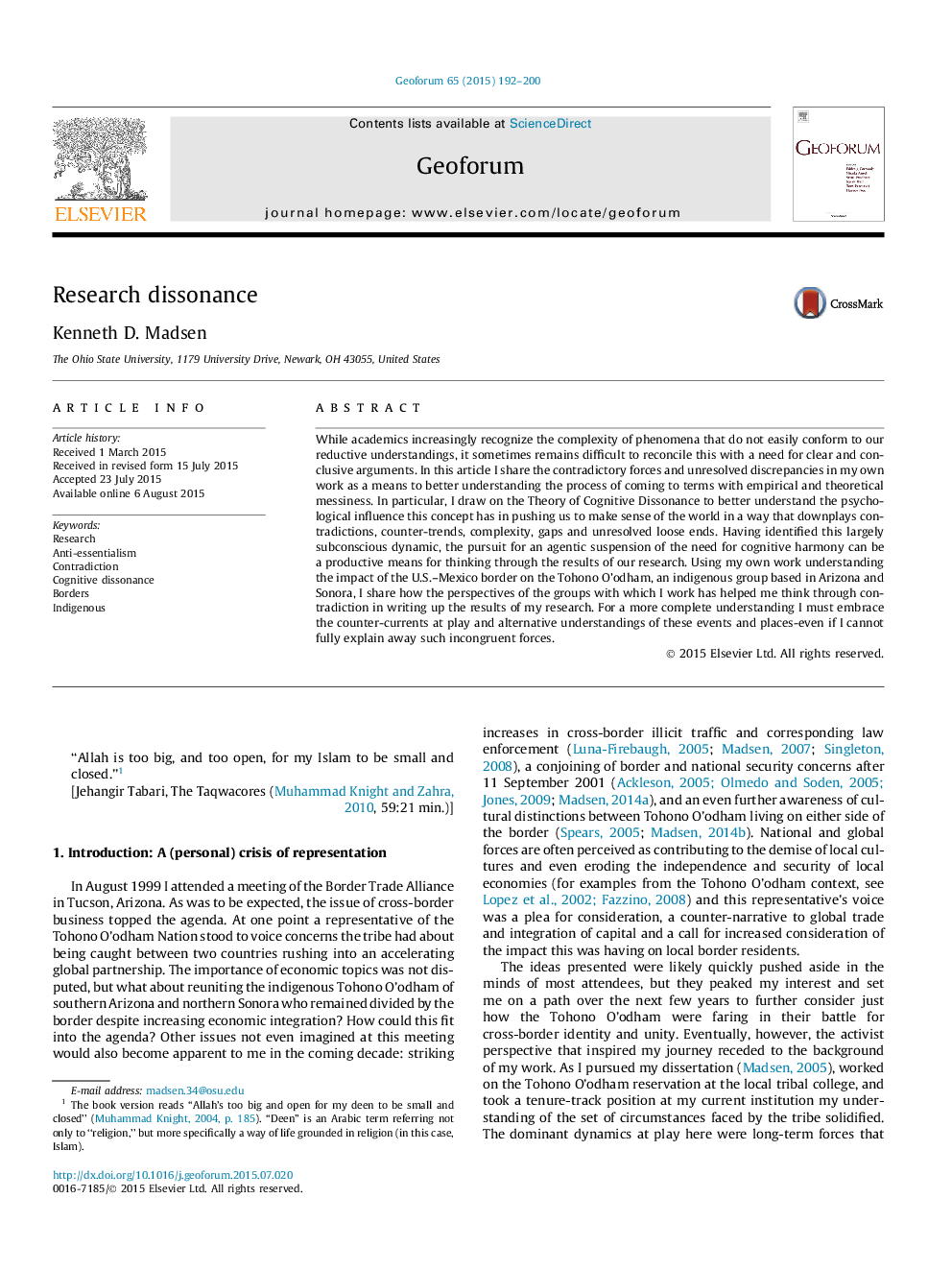| Article ID | Journal | Published Year | Pages | File Type |
|---|---|---|---|---|
| 5073804 | Geoforum | 2015 | 9 Pages |
Abstract
While academics increasingly recognize the complexity of phenomena that do not easily conform to our reductive understandings, it sometimes remains difficult to reconcile this with a need for clear and conclusive arguments. In this article I share the contradictory forces and unresolved discrepancies in my own work as a means to better understanding the process of coming to terms with empirical and theoretical messiness. In particular, I draw on the Theory of Cognitive Dissonance to better understand the psychological influence this concept has in pushing us to make sense of the world in a way that downplays contradictions, counter-trends, complexity, gaps and unresolved loose ends. Having identified this largely subconscious dynamic, the pursuit for an agentic suspension of the need for cognitive harmony can be a productive means for thinking through the results of our research. Using my own work understanding the impact of the U.S.-Mexico border on the Tohono O'odham, an indigenous group based in Arizona and Sonora, I share how the perspectives of the groups with which I work has helped me think through contradiction in writing up the results of my research. For a more complete understanding I must embrace the counter-currents at play and alternative understandings of these events and places-even if I cannot fully explain away such incongruent forces.
Related Topics
Social Sciences and Humanities
Economics, Econometrics and Finance
Economics and Econometrics
Authors
Kenneth D. Madsen,
